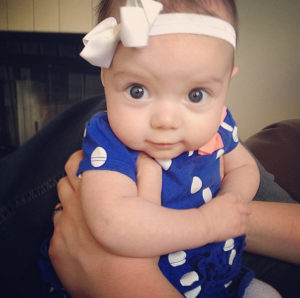In my household, with the start of the school year we begin adjusting to new schedules all over again. This year is particularly difficult because my daughters no longer attend the same school and the start times of their two buildings differ by 1 hour and 5 minutes. We have the obvious issues of having to get to bed earlier for school and waking to an alarm in the morning, and our district is investigating is a bigger issue of the push to move school to a later start time for older students. It seemed like a good time to investigate the sleep needs of children in general.
The Sleep Aid Resource site posts the following table on the sleep needs of children and adults. Keep in mind that each child is different. I like this chart in particular because it outlines the sleep needs if you are pregnant as well. You are growing a little person after all. It is okay to feel that you might need a little more rest than before.
One of my daughters is a night owl who has no trouble waking in the morning. My other daughter has always and continues to need and want more sleep. As an infant she adapted to a sleep schedule with no difficulty (thanks BabyPlus!) and as a toddler and beyond she would sense her bedtime was passing and would ask or put herself to bed. She is still always the first asleep at a slumber party.
SLEEP CHART BY AGE
| Age |
Total Sleep Needed |
Additional Notes |
| 1-4 Weeks |
15-16 Hours |
Newborns are developing their internal biological clocks |
| 1-4 Months |
14-15 Hours |
Regular sleeping patterns begin and longer night sleeping |
| 4-12 Months |
14-15 Hours |
Important to establish regular sleeping patterns at this time |
| 1-3 Years |
12-14 Hours |
Naps remain important to sleep health |
| 3-6 Years |
10-12 Hours |
Naps will become shorter |
| 7-12 Years |
10-11 Hours |
Bedtime gets later |
| 12-18 Years |
8-10 Hours |
Teens may need more sleep |
| Adults |
7-8 Hours |
Times will greatly vary |
| Pregnant |
8+ |
More sleep and naps may be needed |
Young children (infant and toddlers)likely spend a large portion of their day asleep. If you have ever skipped naptime, you may believe that this plentiful sleep is greatly needed. You might find that with decreased sleep you have increased irritability in your little one. Once over tired it may take a little more work to get them calmed down to a point where they can fall asleep. I remember so many times thinking that something was wrong with my daughter as her behavior deteriorated, only to look minutes later and find her fast asleep.
Older children on the other hand have different issues to factor in. By this age they have more obligations to juggle such as school, extra-curricular activities, jobs and homework to name a few. The American Association of Pediatrics explains that the shift in the circadian rhythms of teenagers make it extremely difficult for them to fall asleep before 11 pm. This paired with early school start times makes it nearly impossible for a teen to achieve 8-10 hours of sleep per night. This is the basis for why on August 25, 2014 the AAP issued a policy statement encouraging middle and high schools to delay the start of classes until 8:30am or later. If your local schools are currently considering changing their start times this just might have something to do with it.
Before you shrug off the issue of getting enough sleep, please note that according to the AAP chronic sleep deprivation can contribute to added risks of: becoming overweight, suffering depression, increased automobile accidents, lower grades, lower standardized test scores and lower quality of life.
If you would like to read more from the sources I sited, the links are below.
http://www.sleepaidresource.com/sleep-chart.html
http://www.aap.org/en-us/about-the-aap/aap-press-room/Pages/Let-Them-Sleep-AAP-Recommends-Delaying-Start-Times-of-Middle-and-High-Schools-to-Combat-Teen-Sleep-Deprivation.aspx
• Facebook • Twitter • Delicious • LinkedIn • StumbleUpon • Add to favorites • Email • RSS
The post How much should we sleep? appeared first on blog.babyplus.com.







